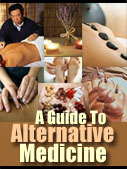Tibetan Medicine
TIBETAN MEDICINE
Tibetans have been in exile since 1959; most of them live in India
and have Indian papers. Their religion is Tibetan Buddhism, and their traditional system of
medicine is rather like traditional Chinese Medicine but Tibetan of course. It has been
practiced for around 2,500 years.
The headquarters of their Medical Institute is in Northern India,
where their doctors are trained and Tibetan Medicines are made.
Doctors of Tibetan Medicine are required to study for a minimum of
seven years, where they learn not only the basics of their medicine, but are required to
learn poetry as well!
Tibetan Medicine is called "gSoba Rig-pa" (which translates as the
science of healing) and virtually all of it is based on herbal remedies.
They also make a type of pill(s) from precious metals which has
had good results with the treatment of ailments such as arthritis, asthma, and ulcers, just
to name a few.
Tibetan medicine teaches that all suffering is caused by one or a
combination of three poisonous ways of thinking-wanting, dread, and denial.
This makes perfect sense when you think about the medicine in
context with Buddhist philosophy, which teaches that these are the very three concepts that
the Buddhist aspires to relieve themselves of.
Tibetan Medicines "Cures" are based in the elimination of urine,
feces, and sweat. When the good elements of the body all work together in harmony, the
patient begins to feel better.
The long term causes of sickness are one of the "three poisons",
which are believed to be caused by imbalances of time and season, poor diet and improper
behavior. (Please note that this article has been extremely over simplified.)
Rlung is to the Tibetans what the Qi is to the Chinese, the life
force which flows through us all and the universe. There are five types of Rlung;
"life grasping" which is located in the brain and controls
intellect, swallowing, sneezing, and breathing.
"Upward moving" is in the chest and controls speech, stamina,
and diligence.
"All pervading" Rlung is located in the heart, and controls
movement, such as walking and the opening and closing of the orifices of the
body.
"Fire accompanying" Rlung is responsible for digestion and
metabolism, and is in the stomach.
The "downward cleansing" Rlung expels everything-feces, urine,
menstrual blood, babies, and semen. This Rlung resides in the rectum.
With regard to what causes sickness time and season, improper
lifestyle or other imbalances spirits are thought to cause the sickness if the time and place
is disturbed.
Different spirits can be disturbed during different times of the
day or year, and consultation with a tantric practitioner is needed to determine if angry
spirits are responsible for the patient's ailment(s).
If this is the case, chanting, meditation and prayer can be used
to return the spirit, and herbs are used to alleviate for example pain, curing the symptoms
as well as the disease.
It is interesting to note that with regard to the sicknesses
involved with an imbalanced diet, Tibetan Medicine does not recommend only raw foods, only
certain foods, etc.
The teaching is very strict with respect to a balance of all
foods.
They do not say to never eat butter, for example, but to eat a
balance of raw and fatty foods.
Diagnosis is done primarily by testing urine and looking at the
patient's tongue. Heavy, thick, yellow or dark urine with a strong odor indicates a "hot"
sickness, while clear, thin, or white urine indicates a "cold" sickness.
The patient's tongue is tested for color, smoothness, and
hydration. The doctor will then take the patient's pulse, and like in acupuncture, can tell
much about blood flow and blockages by the number of beats and strength.
Finally there will be a long list of questions to be answered by
the patient, and treatment will consist of one of four recommendations, advice on diet and
behavior, which is the first step of treatment, and/or prescribing medicine or
surgery.
Usually a change in diet or behaviors helps tremendously, to the
point that medicine-other than symptom relieving medicine or surgery is not
needed.
Many patients use Tibetan Medicine regularly as a preventative,
and so many diseases and ailments are caught in the very early stages.
|























